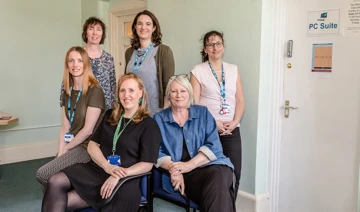Reducing Restrictive Practices
Mission statement on reducing restrictive practices
Kent and Medway NHS and Social Care Partnership Trust is committed to providing quality care that is safe for everyone.
We believe that our patients and carers deserve to receive care and treatment that is safe, effective and is delivered by staff working in an environment free from harm.
Our commitment to reduce incidents of challenging and harmful behaviours that occur within our services, including the use of restrictive and coercive practices is highlighted in our Trust-wide strategy, policies and training programmes; all founded with a Human Rights and person-centred approach to ensure that dignity and respect are central to the care we provide.
The use of restrictive practices can create further challenging and harmful behaviours, which have significant and diverse outcomes for all involved. A reduction in these practices will enhance patient experience, recovery and engagement with services, carers and families. This will also provide a safe and conducive place for our staff to work.
We will achieve this by continuing to embed evidence-based preventative initiatives and strategies, work collaboratively with service users, carers and families and other stakeholders; learn from incidents and further develop a culture of recovery through open and therapeutic relationships.
Interventions Training Course
The safety of patients and staff is our priority and KMPT recognise that staff need to be suitably trained and skilled to maintain patient safety. The Promoting Safe Services Interventions course covers both theoretical components and practical skills aimed to maintain the safety and wellbeing of all patients, staff and visitors. This training is mandatory for staff providing care and support within inpatient units and is updated regularly. It is based on a human rights and person-centred framework and incorporates 12 hours of theory which includes preventative strategies such as communication skills, duty of care and a trauma informed approach; de-escalation skills and the ethical principles surrounding the use restrictive practices.
The practical elements of the course provide staff with the appropriate skills to safely hold an individual who poses an immediate risk to themselves or others ensuring that the least restrictive option is always considered. Additionally, staff are trained in both recognising and reducing potential risks and how to debrief and provide support to all involved.
If you would like further information, please contact the team at kmpt.pss@nhs.net



